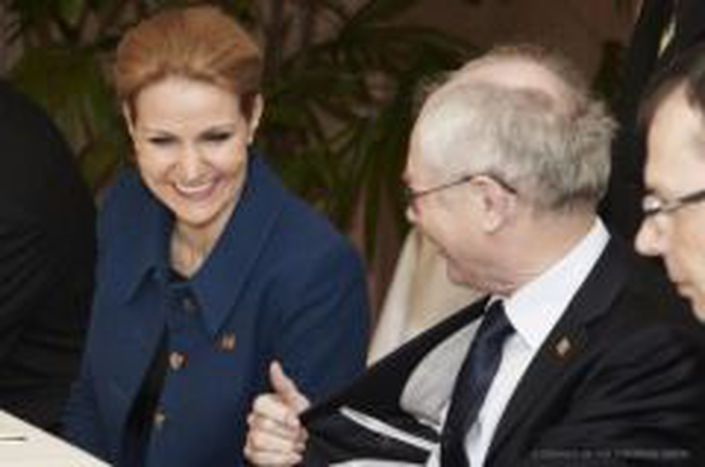
The Summit’s “Little Treaty”
Published on
By Nicolas Arens, Translated by Danica Jorden It’s nothing definite, but it is a treaty nevertheless, as always citing austerity and sanctions with respect to the indelicacies of the budget. A technical, albeit controversial, trifle, this treaty represents another turn of the screw for a Europe that cannot risk losing face before intensifying international pressure.
“No, it’s a promise, after Lisbon there’ll be no more treaties for 10 years,” declared heads of state and government after the Lisbon treaty’s long and labourious ratification. And yet, it is not the first “little treaty” to be discussed and signed at the European Summit. Since Lisbon, however, the process of reviewing internal political treaties has been greatly simplified. No more CIG, no more convention. Discuss, sign, and let national parliaments do the rest!
So this treaty to be signed on Friday morning at the summit deals with budgetary discipline. The treaty’s key measure is certainly the famous “golden rule,” whereby countries’ commitments will not surpass 0.5% of the structural deficit of their national budgets, as well as quasi-automatic sanctions on those accustomed to accounts in the red. From one austerity to another … 25 of the 27 States will surely abide by this commitment. On the bench are Great Britain and the Czech Republic. It must be noted that this treaty is far from having unanimous support among the 25 and the public. Criticism is lodged about it not concerning “real” problems like employment and growth, matters that will be discussed nevertheless at the summit.
Finally, German pressure will ensure that this “little” treaty is passed even if the firewall and other stability mechanisms are not discussed. The original idea was to balance budgetary discipline with access to aid funds. That was enough to convince Ireland “for once” not to demand a referendum on the subject. So there will be nothing for the moment and the European firewall will be pushed back to the “coming weeks,” according to Barroso. Basically, sanctions and little support. However, one or another decision on social issues can be expected to colour Europe’s sometimes austerity bent.



